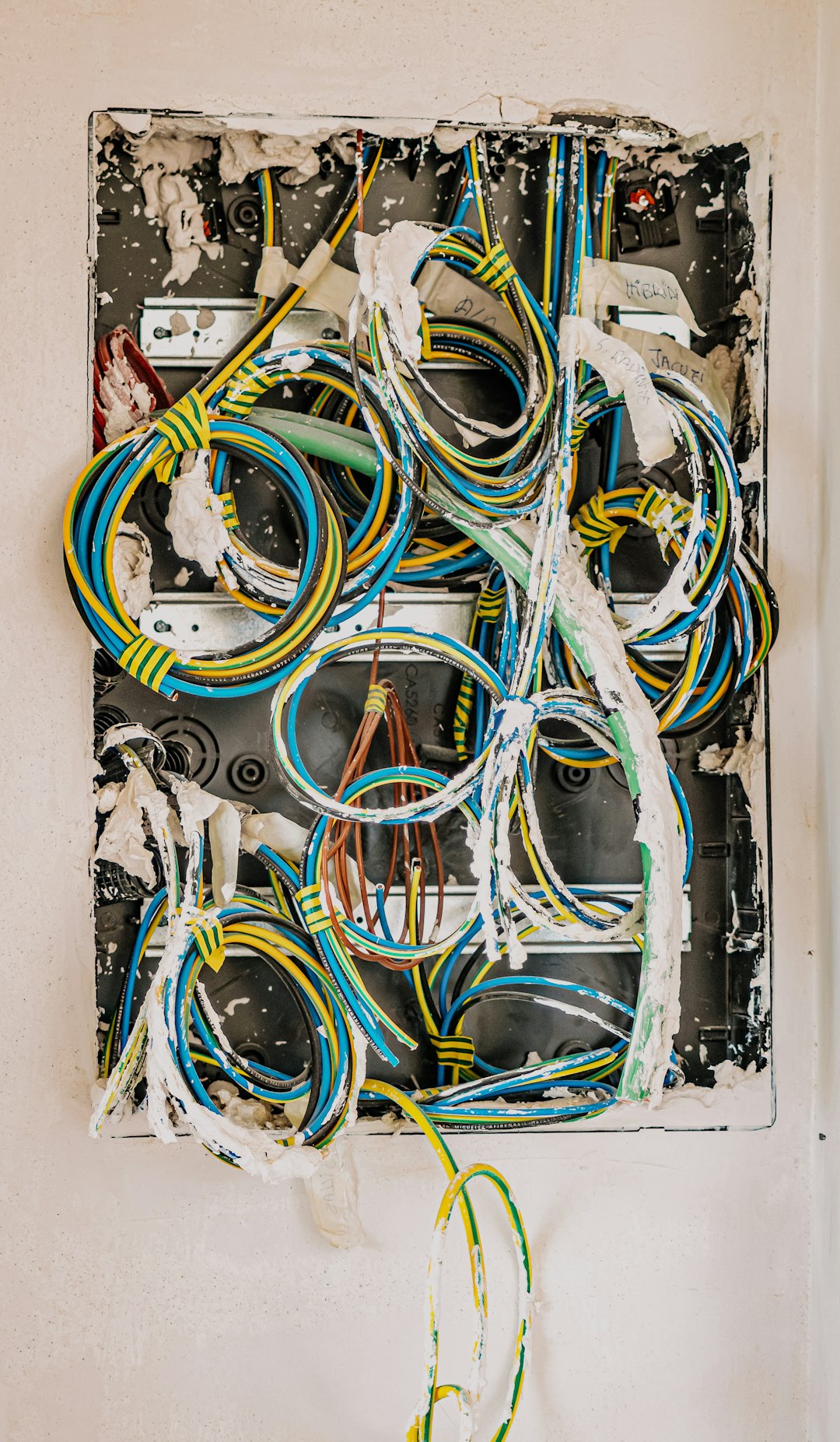Unlock encrypted content
Please enter your SSCE key to initiate on-the-fly decryption.
Decryption key: (Click cancel if you don't have the key)
Copied link to clipboard.
This feature is unavailable for free accounts. Upgrade now and enjoy all Premium benefits.
Go Premium!
This feature is unavailable for free accounts. Upgrade now and enjoy all Premium benefits.
Go Premium!
Please open this page in browser ( Google Chrome or Safari ) to use this feature.
Open In Browser
Blockchain Data Storage: The Future of Remote Backup and Scalable Cloud Storage Architecture.
Random related video for this blog.
Copied share link to clipboard.
In today's digital age, data storage has become a critical aspect of our lives. Whether it's for personal use or business purposes, the need for secure and reliable storage solutions is on the rise. Traditional methods of data storage, such as hard drives and physical servers, have their limitations in terms of capacity, accessibility, and security. However, the emergence of blockchain technology has opened up new possibilities for remote backup and scalable cloud storage architecture. In this article, we will explore how blockchain data storage is revolutionizing the future of data storage, and how it can benefit individuals and businesses alike.
Blockchain Data Storage: A Game-Changer for Remote Backup
Blockchain technology, originally developed as the underlying technology for cryptocurrencies like Bitcoin, has evolved beyond its initial use case. It is now being applied to various industries, including data storage. Blockchain data storage offers a decentralized and distributed approach to storing information, making it resistant to tampering and hacking attempts. Unlike traditional backup methods that rely on centralized servers, blockchain data storage distributes data across a network of nodes, ensuring redundancy and high availability. One of the key advantages of blockchain data storage for remote backup is its immutability. Once data is stored on the blockchain, it cannot be modified or deleted without consensus from the network. This feature ensures data integrity, making it ideal for long-term archival and compliance purposes. Additionally, blockchain data storage provides an extra layer of security through encryption and smart contracts, further safeguarding sensitive information from unauthorized access.Scalable Cloud Storage Architecture: Meeting the Growing Demands
As the volume of data generated continues to grow exponentially, traditional cloud storage solutions face scalability challenges. However, with blockchain data storage, scalability becomes less of a concern. Blockchain technology allows for the creation of decentralized storage networks, where userscan contribute their unused storage space in exchange for incentives. This distributed approach not only increases storage capacity but also improves data accessibility and reduces costs. Moreover, blockchain-based cloud storage architecture enables efficient data retrieval and sharing. Traditional cloud storage providers often rely on centralized servers, resulting in potential bottlenecks and latency issues. With a decentralized architecture, data can be retrieved from multiple sources simultaneously, ensuring faster and more reliable access. This is particularly beneficial for businesses that rely on real-time data analytics or require seamless collaboration across geographically dispersed teams.
Unlocking the Potential: Galactic Empires and Drone Upload of Human Memory
Beyond traditional use cases, blockchain data storage has the potential to unlock groundbreaking applications. Imagine a future where galactic empires can securely store vast amounts of data across interplanetary networks. With blockchain technology, data can be stored and accessed in a distributed manner, ensuring resilience and availability even in remote and hostile environments. This could pave the way for advanced space exploration missions and scientific discoveries. Another fascinating possibility is the drone upload of human memory or brain data to cloud storage. While this may sound like science fiction, researchers are already exploring the concept of digitizing and preserving human memories. By leveraging blockchain data storage, individuals could potentially upload their memories to a secure and decentralized network, preserving them for future generations or even enabling the transfer of knowledge and experiences across different minds.File Retention and Zip Entire Folder: Simplifying Data Management
In addition to its security and scalability benefits, blockchain data storage offers advanced functionalities that simplify data management. Features like file retention and the ability to zip entire folders make it easier to organize and store large volumes of data. File retention allows users to specify the duration for which files should be stored on the blockchain, ensuring compliance with data retention policies and regulations. On the other hand, zipping entire folders streamlines the process of archiving and transferring multiple files, reducing storage space requirements and enhancing efficiency.Robotics: Leveraging Blockchain Data Storage for Autonomous Systems
The integration of blockchain data storage with robotics opens up new possibilities for autonomous systems. By leveraging blockchain technology, robots can securely store and share data with other robots or centralized systems. This enables seamless collaboration and knowledge sharing among robots, enhancing their ability to perform complex tasks and adapt to dynamic environments. For example, in a manufacturing setting, robots can securely access and update production data stored on the blockchain, ensuring synchronization and accuracy across the entire system.Conclusion
Blockchain data storage is poised to revolutionize the future of remote backup and scalable cloud storage architecture. Its decentralized and distributed nature ensures data integrity, security, and accessibility, while also addressing the challenges associated with traditional storage methods. From remote backup to galactic empires and drone upload of human memory, the potential applications of blockchain data storage are vast and exciting. As technology continues to evolve, embracing blockchain data storage can empower individuals and businesses to harness the full potential of data in a secure and efficient manner.Frequently Asked Questions (FAQs)
Question: How does blockchain data storage ensure data security? Answer:
Blockchain data storage utilizes encryption, immutability, and smart contracts to ensure data security. Data stored on the blockchain cannot be modified or deleted without consensus from the network, making it resistant to tampering and hacking attempts.
Question: Can blockchain data storage be scaled to meet growing demands? Answer:
Yes, blockchain data storage can be scaled to meet growing demands. Its decentralized architecture allows for the creation of storage networks where users can contribute their unused storage space, increasing capacity and reducing costs.
Question: What are some practical use cases of blockchain data storage? Answer:
Some practical use cases of blockchain data storage include remote backup, long-term archival, compliance, space exploration, and autonomous systems. It offers secure and scalable storage solutions for various industries and applications.
Case Studies
Case Study 1: Secure Archiving for Healthcare Institutions
In the healthcare industry, patient records and medical data need to be securely stored and readily accessible for compliance and patient care purposes. By leveraging blockchain data storage, healthcare institutions can ensure the integrity and confidentiality of patient information. The immutability of the blockchain prevents unauthorized modifications, while encryption and smart contracts provide an additional layer of security. Moreover, the scalability of blockchain data storage allows healthcare institutions to store and retrieve large volumes of data efficiently, improving operational efficiency and patient outcomes.Case Study 2: Collaborative Research in the Field of Artificial Intelligence
Artificial Intelligence (AI) research often involves large datasets and requires collaboration among researchers from different institutions. Traditional cloud storage solutions may pose challenges in terms of data security, accessibility, and cost. By adopting blockchain data storage, AI researchers can securely store and share datasets across a decentralized network. This enables seamless collaboration, ensures data integrity, and reduces costs associated with centralized storage providers. Additionally, the scalability of blockchain data storage allows researchers to store and process large volumes of data, unlocking new possibilities for AI advancements.Case Study 3: Secure Data Backup for Financial Institutions
Financial institutions handle sensitive customer data that needs to be protected from unauthorized access, data loss, and system failures. By utilizing blockchain data storage, financial institutions can ensure secure data backup and recovery. The decentralized nature of blockchain data storage eliminates single points of failure and reduces the risk of data loss. Additionally, the immutability and encryption features of blockchain technology provide an extra layer of protection against unauthorized access. This enhances data security and compliance with regulatory requirements, instilling trust among customers and stakeholders. In conclusion, blockchain data storage is revolutionizing the future of remote backup and scalable cloud storage architecture. Its decentralized and distributed approach offers enhanced security, scalability, and accessibility compared to traditional storage methods. From secure archiving in healthcare institutions to collaborative research in AI and secure data backup for financial institutions, blockchain data storage has a wide range of applications across industries. By embracing this technology, individuals and businesses can unlock the full potential of data in a secure and efficient manner. file transfer ftp backup upload video auto camera upload cloud storage online backup encryption file sharing large files transfer upload files share file photo upload video sharing site free file uploadBy Amelia Isabella
Email: [email protected]
Related
Cognitive Computing and Real-Time System Monitoring for Enhanced Data Security...
May 31, 2023
Read More
Secure File Sharing, Nanotechnology, and Genetic Algorithms: The Future of...
May 31, 2023
Read More
Popular
Latest
The Future of Digital Transformation: Exploring Smart Homes, Efficient File...
November 30, 2025
Read More
Exploring the Benefits of Cloud Storage and Innovative Technologies in...
November 26, 2025
Read More
The Future of Technology: Exploring Biohacking, Space Tourism, and Digital...
November 23, 2025
Read More
The Future of File Sharing: Streamlined Workflows for Photographers and...
November 19, 2025
Read More
Exploring the Intersection of Technology: From Cybersecurity to Augmented Reality...
November 16, 2025
Read More
The Future of File Management: Embracing Edge Computing and Efficient...
November 12, 2025
Read More
The Future of File Sharing: Exploring User-Friendly Solutions and Data...
November 5, 2025
Read More
The Future of Cloud Storage: How FileLu Empowers Creative Professionals...
November 2, 2025
Read More
The Future of Autonomous Technologies: Innovations in Robotics, File Sharing,...
October 29, 2025
Read More
Emerging Technologies Revolutionizing File Management: From Li-Fi to Robust Collaboration...
October 26, 2025
Read More
Emerging Technologies: Exploring the Impact of File Access Auditing, Genetic...
October 19, 2025
Read More
The Future of Data Storage: Exploring Advanced Encryption, Mobile Integration,...
October 5, 2025
Read More
Exploring the Future of Data Management: Security, Efficiency, and Cognitive...
September 28, 2025
Read More
Revolutionizing Data Management: Innovations in Storage, Security, and Sustainable Technology.
September 24, 2025
Read More
























